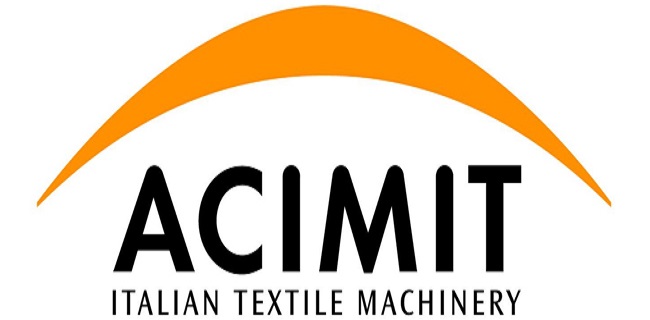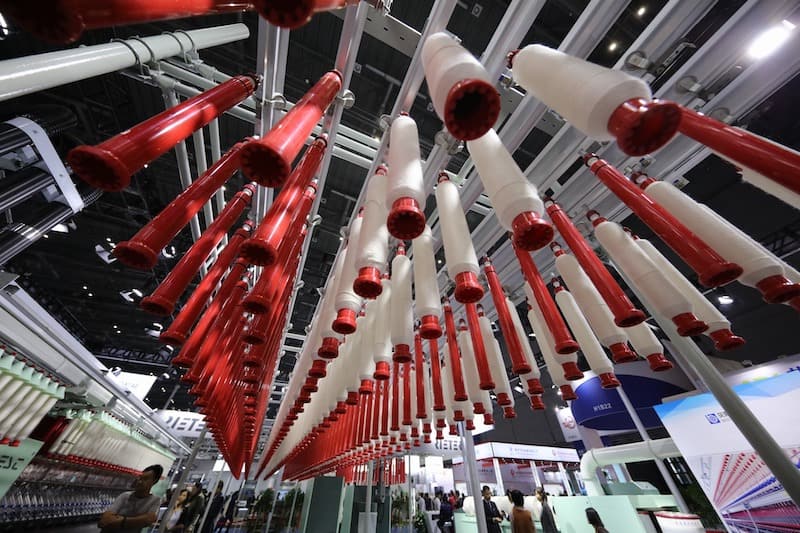Regarding the digitization of production processes, ACIMIT, the Association of Italian Textile Machinery Manufacturers, has launched a project aimed at defining a form of digital certification, which can be used by Italian manufacturers to certify the ease of integration of their machinery into the production systems of their textile customers.
The first step in this project has been the elaboration of a shared reference vocabulary for Italian textile machinery manufacturers, which resulted in the creation of a conceptual model of machine and process production management data that can be useful for textile manufacturers in identifying and calculating related productive KPIs (Key Performance Indicators).
This model was developed by the Manufacturing Group of the School of Management of Politecnico di Milano, under the scientific guidance of prof. Marco Taisch, an international expert on digital transformation processes in the manufacturing sector, and within the bounds of the Industry 4.0 paradigm, supported by researcher Elisa Negri.
Alessandro Zucchi, president of ACIMIT, explained how this project arose: “A group of member companies felt the need to propose to their customers machinery that can communicate with each other in a common language, facilitating the integration of data between these machines within their customers’ operating systems (ERP, MES, CRM, etc.). We therefore turned to prof. Taisch to define a project together that could be useful to all manufacturers in the industry, accelerating their digitization process.”

As stated by Marco Taisch, “New technologies are being developed today that will become increasingly critical for manufacturers. The ability to conduct predictive analytics, using sensors capable of reading data, and the capability of connecting machinery (the so-called Internet Of Things – IOT) are technologies based on the concept of information that allow for the collection of data, their analysis and the ability to use such data in business processes. The goal of this project by ACIMIT is to work together and exploit a competitive advantage proposed to its member companies, in turn allowing for a rethinking of KPI measurement systems adopted within each individual company, and adapting them to a standard language shared by a wider community.”
As for the long term, the project aims to build customer loyalty, thanks to a common vision of machine data and an easier and more uniform integration of information derived from the machinery of different manufacturers in the operating systems of client companies. All this will be rendered concrete in the creation of the ACIMIT Digital Label, a digital certification of adherence for member companies applying this data model.
“The idea of a digital label,” adds Taisch, “will allow customers to be provided with a continuous flow of information that is easily interpreted, and above all will allow for the development of additional services and new business models for greater competitiveness within the industry.”
Zucchi concludes by stating, “Our proposal to Italian textile machinery manufacturers is to adopt the common language provided in the model to allow their machinery to communicate. The entire Italian textile machinery supply chain will benefit from this, by presenting a single data model for the interface between machines and production systems – and their customers will also benefit, in facilitating the collection and integration of machine data and simplifying business analyses.”
ACIMIT represents an industrial sector that comprises roughly 300 manufacturers (employing around 12,000 people), producing machinery for an overall worth of around 2.3 billion euros, of which 82% are exported. Creativity, sustainable technology, reliability and quality are the hallmarks that have made Italian textile machinery worldwide leaders.
The Manufacturing Group is a research group within the School of Management of Politecnico di Milano, composed of around 40 researchers and professors working in the field of Smart and Digitized Manufacturing, Circular Manufacturing, Energy Efficient Manufacturing, Sustainable Mass Customization, Lean Product and Service Design, Product, Process and System Data Modeling, Internet of Things, Internet of Services and Cyber-Physical Systems




















